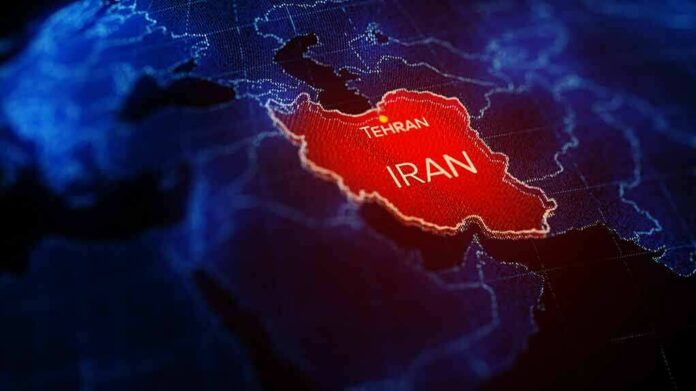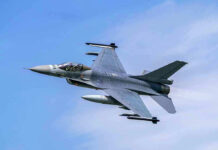
Russia has forcefully condemned Israel’s airstrikes on Iran as “categorically unacceptable,” setting off international alarm about a potential nuclear catastrophe and wider regional war.
Key Takeaways
- Russia labeled Israel’s strikes on Iran as “unprovoked” and a violation of international law and the UN Charter
- The military action targeted Iran’s nuclear facilities, military leadership, and killed senior Iranian figures, including top generals
- The timing coincided with an International Atomic Energy Agency meeting and upcoming US-Iran nuclear negotiations
- Russia has suggested it could help manage Iran’s nuclear program by exporting Iran’s nuclear material
- The strikes challenge Iran’s strategic partnership with Russia, which lacks mutual defense commitments
Russia’s Diplomatic Condemnation
Moscow’s reaction to Israel’s military strikes against Iranian targets was swift and unequivocal. The Russian Foreign Ministry issued a strong statement characterizing the attacks as an assault on Iran’s sovereignty and a direct violation of international law. The timing of these strikes has raised eyebrows in diplomatic circles, as they occurred shortly before scheduled nuclear negotiations between the United States and Iran, potentially undermining diplomatic efforts to address regional tensions through peaceful means rather than military confrontation.
“Unprovoked military strikes against a sovereign UN member state, its citizens, peaceful sleeping cities, and nuclear energy infrastructure are categorically unacceptable,” stated the Russian Foreign Ministry.
Russia’s Foreign Ministry has condemned Israel’s overnight airstrikes on Iran as “unprovoked” and “unacceptable”, and called for both sides to act with restraint in order to prevent the further escalation of tensions in the Middle East.
🔗 | https://t.co/PlzD7zwi3t pic.twitter.com/kryeBLbONy
— Novaya Gazeta Europe (@novayagazeta_en) June 13, 2025
Strategic Implications for Russia-Iran Relations
The Israeli strikes have significant implications for Russia’s strategic partnership with Iran. While the two nations maintain close cooperation, particularly in military technology, with Iran supplying drone technology to Russia for use in Ukraine, their partnership lacks the mutual defense commitments that would obligate Russia to respond militarily. This reality places President Putin in a delicate position as he balances Russia’s interests in the region while avoiding confrontation with Israel or its Western allies.
“Don’t forget: the Strategic Partnership Treaty does not include mutual defense commitments of the type Moscow provided to DPRK [North Korea] & Belarus,” noted Hanna Notte.
‼️🇷🇺🇮🇷🇮🇱 Key Statements from the #Russian Foreign Ministry:
➡️ Russia strongly condemns Israel’s use of force against Iran, calling it a blatant violation of the UN Charter.
➡️ Moscow maintains that there is no military solution to the situation surrounding #Iran’s nuclear… pic.twitter.com/HpA3aKdXiC
— Maimunka News (@MaimunkaNews) June 13, 2025
Nuclear Concerns and Potential Russian Mediation
The targeting of Iran’s nuclear facilities has heightened global concerns about potential escalation and nuclear safety. Russia has positioned itself as a potential mediator in the crisis, suggesting it could help manage Iran’s nuclear program by exporting nuclear material for conversion into reactor fuel. This proposal represents a potential diplomatic solution that aligns with Russia’s interests in preventing nuclear proliferation while maintaining its influence in the region through constructive engagement with both Iran and Western powers.
“I stated to President Putin that Iran cannot have a nuclear weapon, and, on this, I believe that we agreed. President Putin suggested that he would participate in the discussions with Iran and that he could, perhaps, help get this brought to a rapid conclusion,” stated President Donald Trump.
Regional and International Reactions
The Israeli strikes have generated a cascade of diplomatic responses across the region. Armenia, Azerbaijan, and Turkey have joined Russia in condemning Israel’s actions, calling for adherence to international law and diplomatic resolution. European leaders, including representatives from the UK and the European Commission, have similarly urged restraint and a return to diplomacy. These coordinated responses reflect growing international concern about the potential for escalation into a wider regional conflict that could destabilize the Middle East and potentially impact global energy markets.
Russia condemned Israel's attack on Iran and threatened that "Western countries" which "satisfy their political biases and phobias, will realize the disastrous results of their destructive course and the extent of their guilt for the tragedy."
Full text below:
Statement by the… https://t.co/WTsue5aoj0 pic.twitter.com/CYqfyT7RnA
— Anton Gerashchenko (@Gerashchenko_en) June 13, 2025
The complex web of alliances and strategic interests at play in this crisis highlights the increasingly multipolar nature of global politics. While the Biden administration continues its appeasement approach toward Iran, President Trump has suggested a more direct approach, recommending that Iran negotiate to avoid further destruction. As tensions continue to simmer, President Putin’s potential role as a facilitator of diplomatic resolution remains significant, reflecting Russia’s continued influence in global affairs despite Western attempts to isolate Moscow through sanctions and diplomatic pressure.












